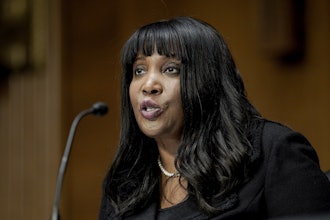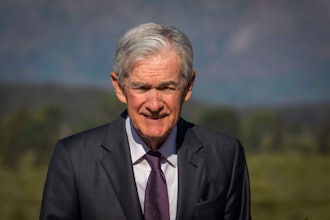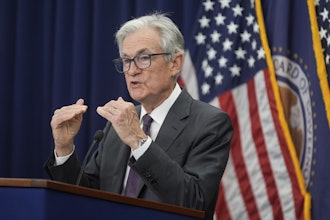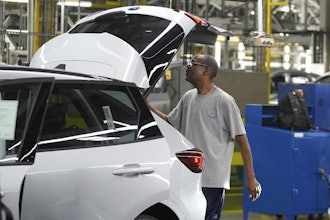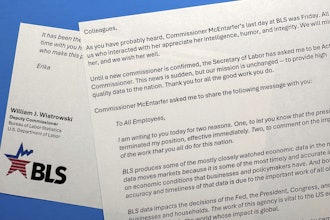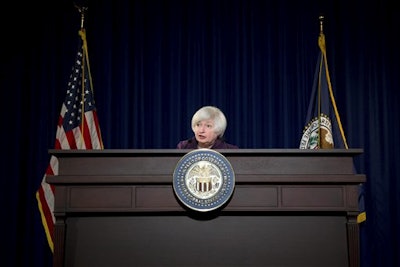
 WASHINGTON (AP) — The Federal Reserve took note Wednesday of a strengthening U.S. economy and appears on track to raise interest rates this year for the first time in nearly a decade.
WASHINGTON (AP) — The Federal Reserve took note Wednesday of a strengthening U.S. economy and appears on track to raise interest rates this year for the first time in nearly a decade.
But Chair Janet Yellen declined to say just when or how fast the Fed would act.
In a statement after its latest policy meeting, the Fed noted that the job market, the housing industry and consumer spending are all improving. At the same time, it made clear it wants to see further economic gains and higher inflation before raising rates from record lows.
Even after the Fed begins raising rates, Yellen stressed at a news conference that it will likely do so very gradually.
Once the Fed begins raising short-term rates, the impact will range widely. Other rates — for mortgages, auto loans, corporate borrowing — could head higher. Stock and bond prices could be squeezed.
All but two of its 17 policymakers signaled their belief that the Fed will raise its key short-term rate at some point this year. That rate has been held near zero since 2008. Many analysts predict that if the economy keeps improving, the Fed will raise rates in September.
The Fed's decision, which had been expected, was approved on a 10-0 vote.
Carl Tannenbaum, chief economist at Northern Trust, noted that the policymakers appear sharply divided over how aggressively the Fed will raise rates: Five expect one increase this year, five foresee two increases and five three increases. Two don't expect any increase this year.
"If you're an investor trying to get a clear view of what monetary policy might be going forward, there is still a great deal of uncertainty," said Carl Tannenbaum, chief economist at Northern Trust.
"We are expecting the first move in September," Tannenbaum said. "But I am not expecting them to move aggressively thereafter. I think they'll try to be quite cautious ... there are still fragile parts of the world economy that might be unsettled by a rapid increase in American interest rates."
At her news conference, Yellen said of a timetable for the first rate hike:
"I can't give an ironclad promise, but I think it's clear from our summary of economic projections that we anticipate that the economy will grow, that the labor market will improve, that inflation will move back up to 2 percent. And if economic conditions unfold in the way that most of my colleagues and I anticipate, we see it as appropriate to raise rates."
The Fed's statement noted that some economic sectors remain subpar. It said, for example, that while the job and housing markets had improved, business investment and exports remained "soft."
Business investment has been hurt by a plunge in oil prices, which have caused cutbacks at energy companies. And U.S. exports have been battered by the rising value of the dollar, which makes American goods more expensive overseas.
In a quarterly assessment of the economy, the Fed sharply lowered its estimate of growth this year, from a range of 2.3 percent to 2.7 percent estimated in March to just 1.8 percent to 2 percent. The downgrade reflects the economy's contraction in the January-March quarter, which resulted in part from a brutal winter.
The Fed also predicted that the unemployment rate would be 5.2 percent to 5.3 percent by year's end. Three months ago, it thought unemployment would drop to a range of 5 percent to 5.2 percent by the end of the year. The rate is now 5.5 percent.
The job market has added an average of 217,000 jobs a month this year. The unemployment rate is down from 6.3 percent a year ago and 7.5 percent two years ago.
There are still lingering problems in the labor market. Though average hourly earnings rose 2.3 percent in May from a year ago, wage increases remain generally sluggish. Other labor market indicators — from the number of people jobless for more than six months to the number of part-time workers who would prefer full-time jobs — remain at levels the Fed views as subpar.
Beyond employment, the central bank has yet to achieve its other mandate — promoting stable prices. Inflation has remained persistently below the Fed's 2 percent annual target. Too-low inflation tends to hold back economic growth.
But in its statement, the Fed seemed to suggest that inflation might soon move back up to its target rate: It said energy prices, which have tumbled in the past year and have held down overall inflation, "appear to have stabilized."
The Fed wants to take care to avoid spooking investors, who are already on edge over the likelihood of a rate hike and the threat of a default by Greece's government. Asked about the standoff between Greece and its creditors, Yellen said that if no agreement is reached, "I do see the potential for disruptions that could affect the European economic outlook and global financial markets."
She added, "There would undoubtedly be spillovers to the United States that would affect our outlook as well."









